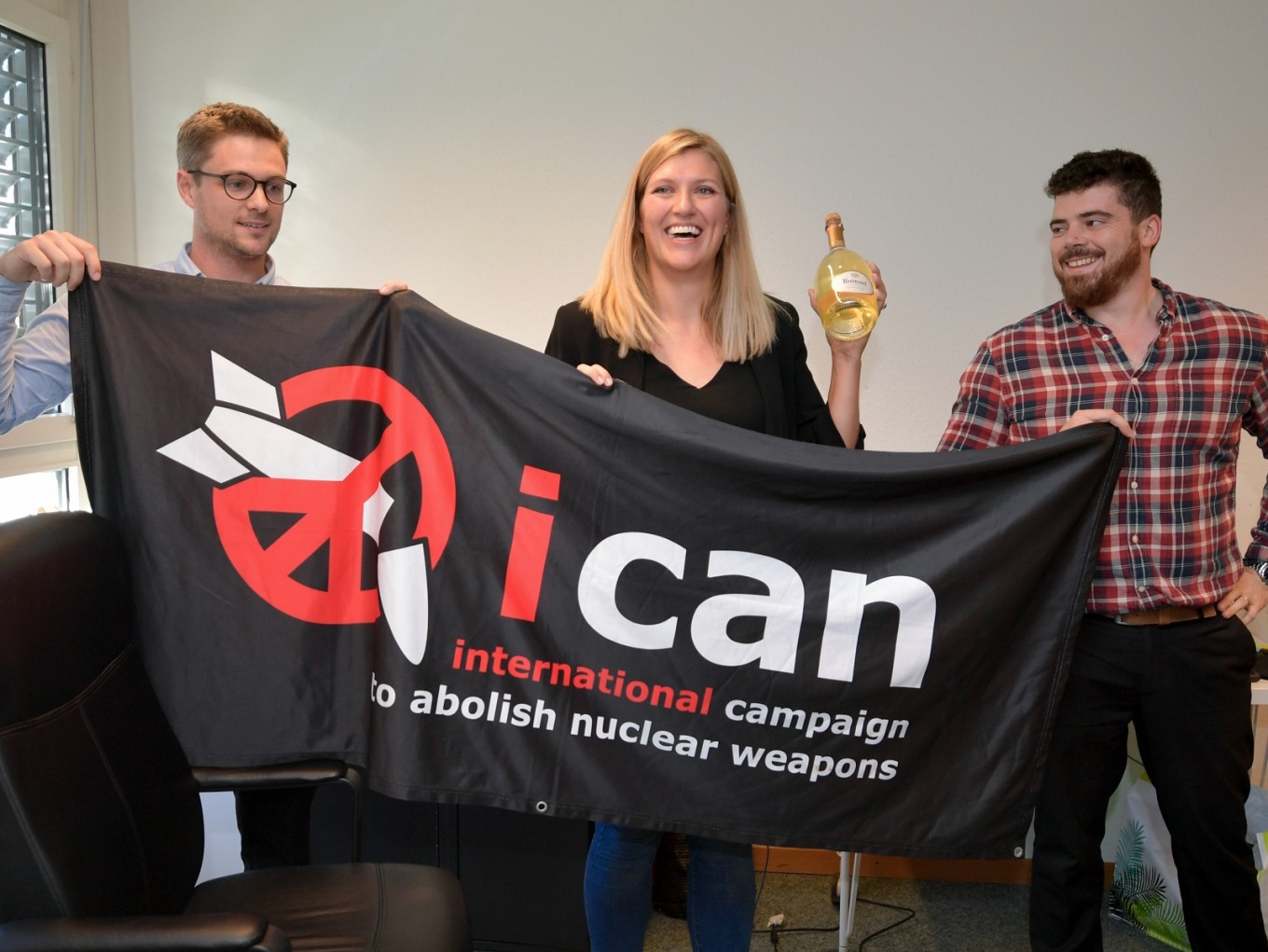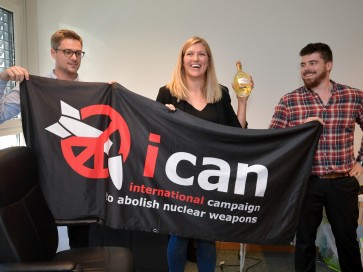Popular Reads
Top Results
Can't find what you're looking for?
View all search resultsPopular Reads
Top Results
Can't find what you're looking for?
View all search resultsIndonesia can spearhead gender-inclusive disarmament initiative
In its current position helming the ongoing High-Level Segment of the Conference on Disarmament, Indonesia has an opportunity to use this platform to encourage a radical change toward the integration of a gender perspective into the global disarmament agenda.
Change text size
Gift Premium Articles
to Anyone
 Deputy director Daniel Högsta (left) and executive director Beatrice Fihn (center) of the International Campaign to Abolish Nuclear Weapons (ICAN), along with Fihn’s husband Will Fihn Ramsay, hold up an ICAN banner on Oct. 6, 2017 in Geneva, after the group won the Nobel Peace Prize for its decade-long campaign to rid the world of the atomic bomb as nuclear-fuelled crises swirl over North Korea and Iran. (AFP/Fabrice Coffrini)
Deputy director Daniel Högsta (left) and executive director Beatrice Fihn (center) of the International Campaign to Abolish Nuclear Weapons (ICAN), along with Fihn’s husband Will Fihn Ramsay, hold up an ICAN banner on Oct. 6, 2017 in Geneva, after the group won the Nobel Peace Prize for its decade-long campaign to rid the world of the atomic bomb as nuclear-fuelled crises swirl over North Korea and Iran. (AFP/Fabrice Coffrini)
S
ince its inception in 1979, the Conference on Disarmament (CD) has served as a cornerstone for negotiating international treaties focused on the disarmament of weapons of mass destruction and conventional arms. This forum has undergone significant evolution, reflecting the global community's commitment to peace and security.
Indonesia, as a nation that initiates and promotes various dialogues and cooperation in Southeast Asia, has a strong track record of promoting regional peace and security. As a proactive member of this forum, it now takes on the mantle of leadership, presenting a golden opportunity to introduce a groundbreaking agenda: the integration of gender perspectives into the realm of disarmament.
Indonesia's leadership of this forum, which is now underway, emerges as not just an opportunity but also a necessity for radical change. This task demands more than strategic diplomacy; it requires a revolution in our approach and thinking toward disarmament.
Amid deepening global uncertainties, there is no issue more critical, timely or urgent than the integration of a gender perspective into the disarmament agenda.
This criticism is not unfounded. Although United Nations Security Council (UNSC) Resolution 1325 on Women, Peace and Security (WPS) has been long recognized, its implementation in the context of disarmament remains sporadic and often symbolic. The power of women as policymakers, negotiators and change agents is frequently underestimated, diminishing the effectiveness and sustainability of our disarmament efforts.
Indonesia's CD leadership must therefore serve as a catalyst for changing this paradigm, affirming that gender integration is not merely a moral obligation but a strategic necessity. For instance, Indonesia could initiate the establishment of stronger monitoring and evaluation mechanisms to measure the effectiveness of gender integration in disarmament and peace processes.
What is needed is a bold and innovative approach. Indonesia must use this platform to encourage deeper discussions on how gender influences and is influenced by disarmament policies. This includes identifying specific barriers that hinder women's participation in these processes and formulating strategies to overcome these obstacles.


















